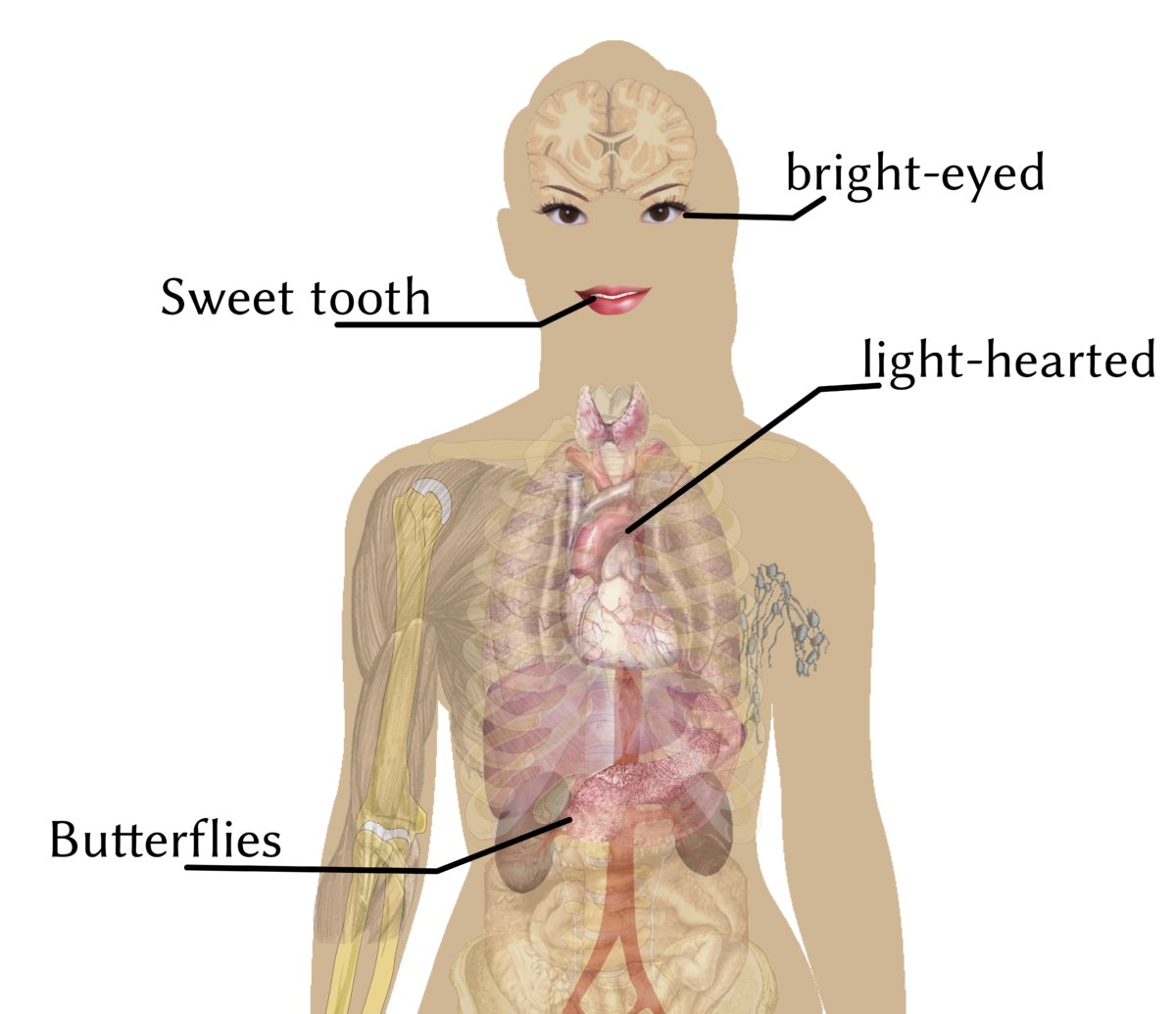I was invited to the University of Potsdam to talk about some of my recent work on morphology. I took the opportunity to discuss some of my observations about word-like properties of complex phrases, in particular the way they combine into word-like paradigms. You can see my slides here.
Tag: nominalisation
Now out: Dozing eyes and drunken faces
 In many languages of the world, emotions and medical conditions are not attributed to an individual, but to a certain body part. For example, instead of saying “I am sad”, you may have to say something along the lines of “my heart is heavy” in many languages. In these cases, the meaning of “being sad” does not reside in a single word. “Heart” alone does not express sadness, and neither does “heavy”. Only the combination of the two can express this concept. The question is then how such languages form expressions that refer to an abstract emotion such as “sadness” . And the answer is that there are different strategies. One strategy is to say something like “the heaviness of the heart”. The Oceanic language Daakaka, however, uses a different strategy. Here, an emotion concept is expressed by a structure such as “the heavy heart”. This paper investigates these differences and their implications. Get it here or ask me for the preprint.
In many languages of the world, emotions and medical conditions are not attributed to an individual, but to a certain body part. For example, instead of saying “I am sad”, you may have to say something along the lines of “my heart is heavy” in many languages. In these cases, the meaning of “being sad” does not reside in a single word. “Heart” alone does not express sadness, and neither does “heavy”. Only the combination of the two can express this concept. The question is then how such languages form expressions that refer to an abstract emotion such as “sadness” . And the answer is that there are different strategies. One strategy is to say something like “the heaviness of the heart”. The Oceanic language Daakaka, however, uses a different strategy. Here, an emotion concept is expressed by a structure such as “the heavy heart”. This paper investigates these differences and their implications. Get it here or ask me for the preprint.

